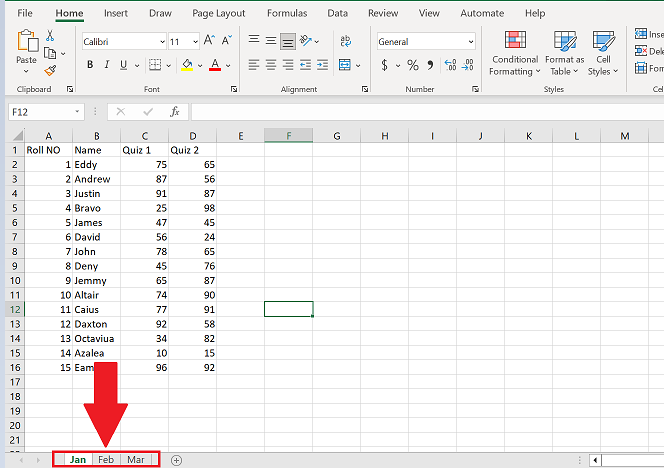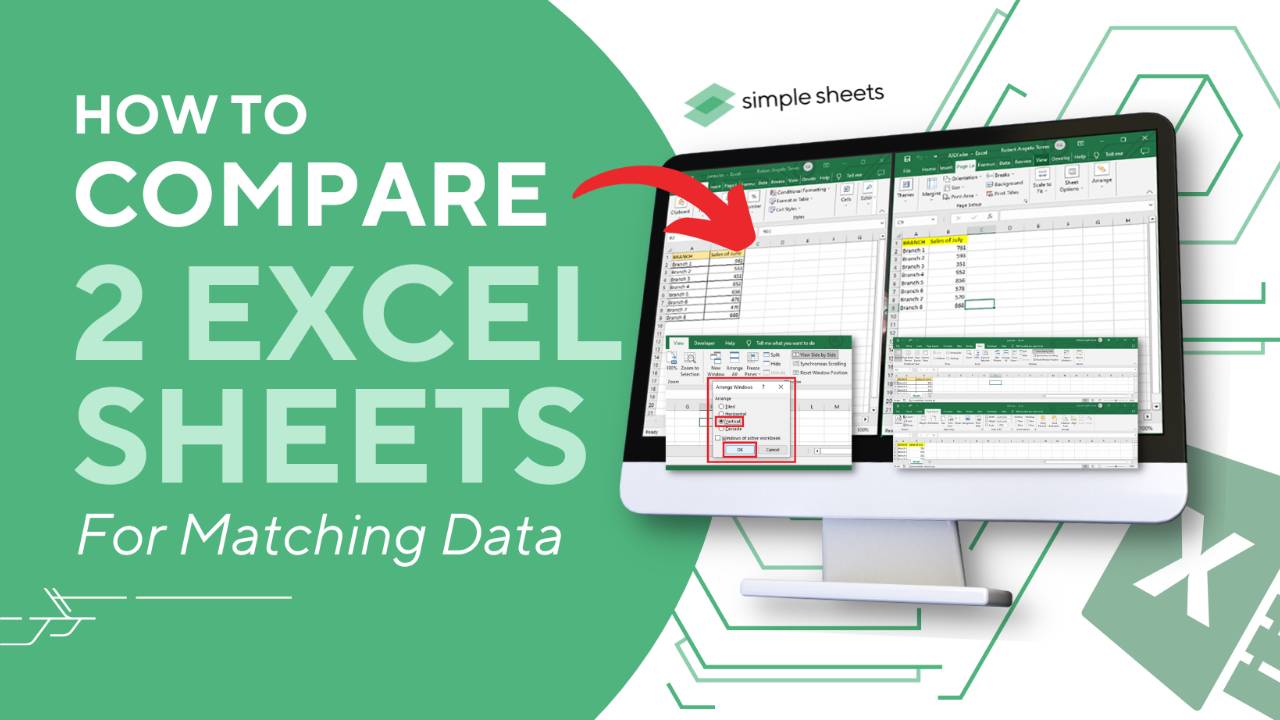3 Ways to Select Numbers from Two Excel Sheets

Combining or comparing data from multiple Excel sheets is a common necessity for analysts, accountants, and anyone dealing with datasets across different documents. This post will explore three distinct methods for selecting numbers from two separate Excel sheets for analysis or reporting purposes. These methods will cater to different levels of expertise in Excel, from beginners to power users.
Method 1: Using VLOOKUP

The VLOOKUP function is ideal when you need to look up and retrieve data from one sheet to another based on matching criteria.
Steps:

Identify the Lookup Value: Determine the common identifier between the two sheets. For instance, if you’re matching product IDs, ensure they are unique.
Create the VLOOKUP Formula: In the sheet where you want to pull the data:
=VLOOKUP(A2,Sheet2!A2:D100,2,FALSE)
Here,A2is the lookup value from the current sheet,Sheet2!A2:D100is the data range in the other sheet,2indicates the column number you want to return, andFALSEspecifies an exact match.Expand the Formula: Drag or copy this formula down to other cells to retrieve corresponding numbers.
Pros and Cons:

| Pros | Cons |
|---|---|
| Straightforward for matching single columns. | Can’t look left; returns values from columns to the right only. |
| Works well for exact matches. | May slow down with large datasets. |

🔍 Note: Ensure the lookup value is unique in the second sheet to avoid incorrect returns.
Method 2: Index Match Combination

When you need to return a value from a different column than the lookup column, or if the lookup column is not the leftmost, INDEX MATCH is a powerful alternative.
Steps:

Identify Matching Column: Decide on the columns for matching and data retrieval.
Write the INDEX MATCH Formula:
=INDEX(Sheet2!B2:D100,MATCH(A2,Sheet2!A2:A100,0),2)
Here,Sheet2!B2:D100is the range containing the numbers,A2is the lookup value,Sheet2!A2:A100is the lookup range, and2specifies the column number within the range to return.
Pros and Cons:

Pros: Allows for lookup in any column, not restricted to the leftmost. More flexible than VLOOKUP.
Cons: Slightly more complex for beginners to master. Can be slower with large datasets.
📝 Note: This method is more efficient when retrieving data from multiple columns.
Method 3: Power Query (Get & Transform Data)

For users comfortable with Excel's advanced features, Power Query provides a robust way to merge data from two sheets.
Steps:

Select Data Range: Highlight the data in the first sheet and click “From Table/Range” under the “Data” tab.
Combine Sheets: Use the “Merge Queries” feature in Power Query to join the two sheets on a common key.
Select Necessary Columns: After merging, expand the columns to include relevant numbers for your analysis.
Load Results: Click “Close & Load” to bring the merged data back into Excel.
Pros and Cons:

Pros: Allows for complex data transformations and multiple source integration. Offers scalability.
Cons: Requires learning curve for those new to Power Query. Might not be necessary for simple lookups.
In summary, the methods discussed provide various approaches to select and compare numbers from two Excel sheets. VLOOKUP is simple and ideal for small datasets with exact matches, INDEX MATCH offers flexibility for complex data arrangements, while Power Query is best suited for advanced users dealing with larger datasets or needing to perform multiple data manipulations. Each method has its strengths, allowing you to choose the one that best fits your specific needs in Excel data management. To enhance your workflow in Excel, consider these techniques as tools in your arsenal. They not only streamline data analysis but also reduce the likelihood of manual errors, making your reports or analyses more reliable and insightful.
Can I use VLOOKUP for approximate matches?

+
Yes, if you set the last argument of the VLOOKUP function to TRUE or omit it, Excel will look for an approximate match.
What happens if the lookup value isn’t found in the second sheet?

+
Both VLOOKUP and INDEX MATCH will return an #N/A error if the lookup value is not found in the specified range.
Is Power Query available in all versions of Excel?

+
Power Query is available in Excel 2010 (with the Power Query add-in), Excel 2013 (Professional Plus and Office 365 ProPlus), and all versions of Excel 2016 and later.



